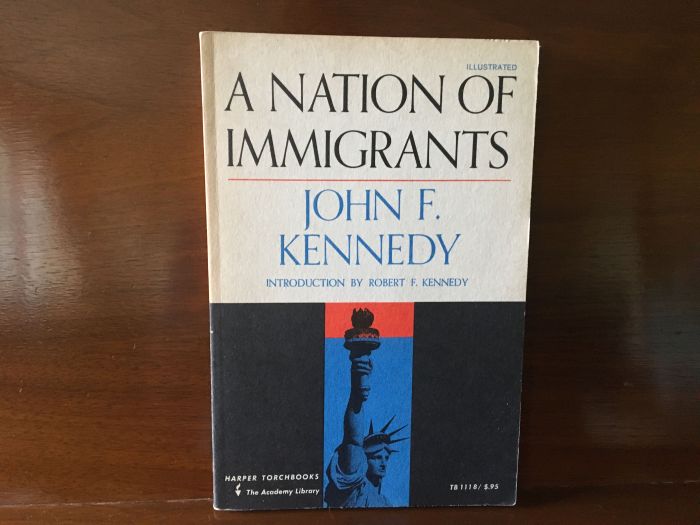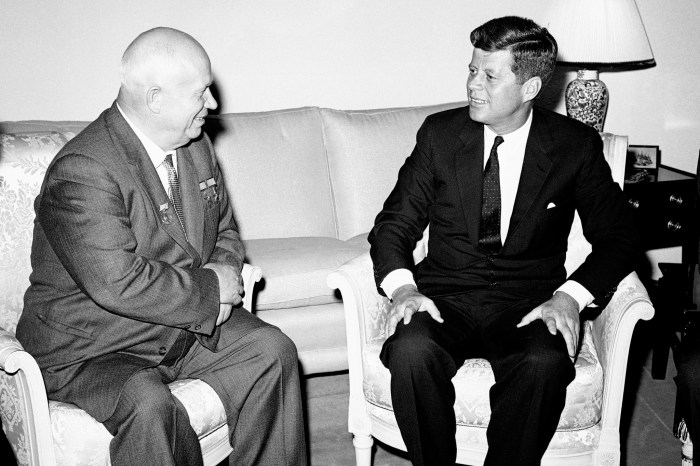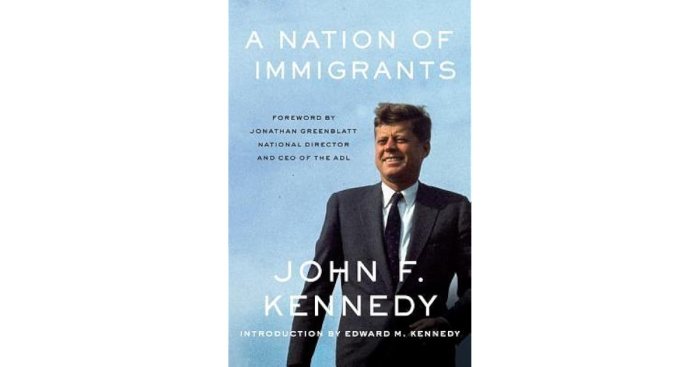The immigrant contribution john f kennedy – The immigrant contribution to the United States has been a defining characteristic of the nation since its inception. John F. Kennedy, the 35th President of the United States, played a pivotal role in shaping immigration policy and discourse during his presidency.
His views on the importance of immigration, the policies he implemented, and the enduring legacy of his stance continue to resonate today.
Kennedy’s perspective on immigration was rooted in his belief that immigrants were essential to the vitality and prosperity of the United States. He famously stated, “Immigration has enriched and strengthened the fabric of American life.”
John F. Kennedy’s Perspective on Immigration

John F. Kennedy believed that immigration was essential to the strength and vitality of the United States. He saw immigrants as a source of new ideas, skills, and energy that helped to drive the nation’s economy and culture forward.
In a speech to the Daughters of the American Revolution in 1962, Kennedy said, “Immigration is not just a matter of economics. It is a matter of justice. It is a matter of our own security. It is a matter of our own future.”
He argued that the United States had a moral obligation to welcome immigrants who were seeking a better life.
Kennedy’s support for immigration was also evident in his actions as president. He signed the Immigration and Nationality Act of 1965, which abolished the national origins quotas that had previously restricted immigration from certain countries. He also created the Peace Corps, which sent volunteers to developing countries to promote economic and social development.
Historical Context of Immigration During Kennedy’s Presidency

The United States experienced a significant increase in immigration during Kennedy’s presidency. In 1961, the year Kennedy took office, 251,000 immigrants arrived in the United States. By 1965, that number had increased to 324,000.
The majority of immigrants during this time came from Latin America and Asia. Many of them were fleeing poverty, war, or political persecution in their home countries.
Kennedy’s Immigration Policies
Kennedy’s immigration policies were designed to address the challenges faced by immigrants and to promote their integration into American society.
One of Kennedy’s most important immigration initiatives was the Immigration and Nationality Act of 1965. This law abolished the national origins quotas that had previously restricted immigration from certain countries. It also established a preference system for skilled workers and family members of U.S.
citizens and permanent residents.
In addition to the Immigration and Nationality Act, Kennedy also created the Peace Corps and the Cuban Refugee Program. The Peace Corps sent volunteers to developing countries to promote economic and social development. The Cuban Refugee Program provided assistance to Cubans who were fleeing the communist regime of Fidel Castro.
Impact of Kennedy’s Immigration Policies

Kennedy’s immigration policies had a significant impact on the lives of immigrants and the overall economy.
The Immigration and Nationality Act of 1965 led to a dramatic increase in the number of immigrants from Latin America and Asia. This influx of new immigrants helped to revitalize the U.S. economy and to create a more diverse and vibrant society.
The Peace Corps and the Cuban Refugee Program also had a positive impact on the lives of many people. The Peace Corps volunteers helped to improve living conditions in developing countries, and the Cuban Refugee Program provided assistance to Cubans who were fleeing political persecution.
Legacy of Kennedy’s Immigration Stance
Kennedy’s views and policies on immigration continue to shape discussions today. His support for immigration and his belief in the importance of diversity are still seen as essential to the American identity.
Kennedy’s legacy is also evident in the immigration policies that have been enacted since his presidency. The Immigration and Nationality Act of 1965 remains the cornerstone of U.S. immigration law, and the Peace Corps continues to send volunteers to developing countries around the world.
Key Questions Answered: The Immigrant Contribution John F Kennedy
What were Kennedy’s key immigration policies?
Kennedy’s immigration policies included the establishment of a new refugee resettlement program, the expansion of educational opportunities for immigrants, and the creation of a task force to study immigration issues.
How did Kennedy’s immigration policies impact the lives of immigrants?
Kennedy’s policies provided greater opportunities for immigrants to settle in the United States, access education, and contribute to American society.
What is the legacy of Kennedy’s immigration stance?
Kennedy’s views and policies on immigration continue to shape discussions and debates about immigration in the United States today.